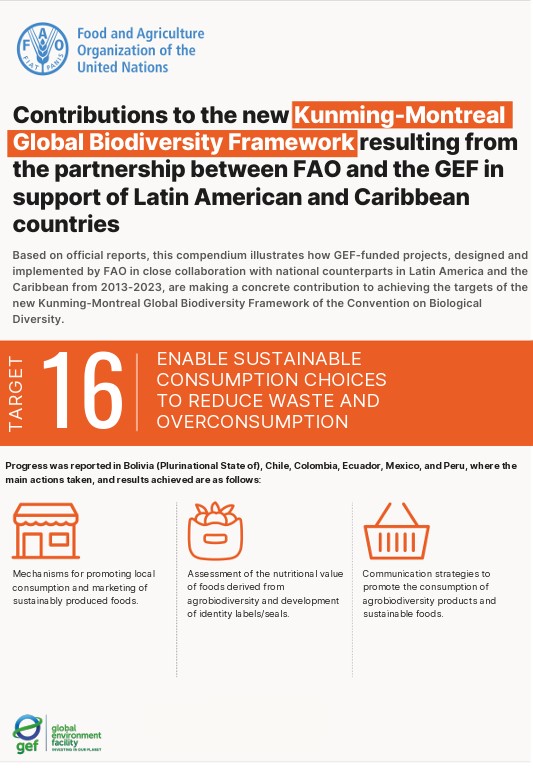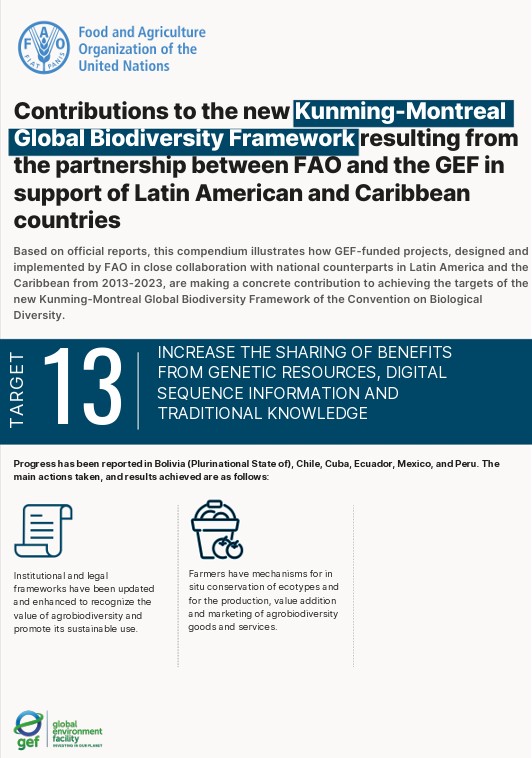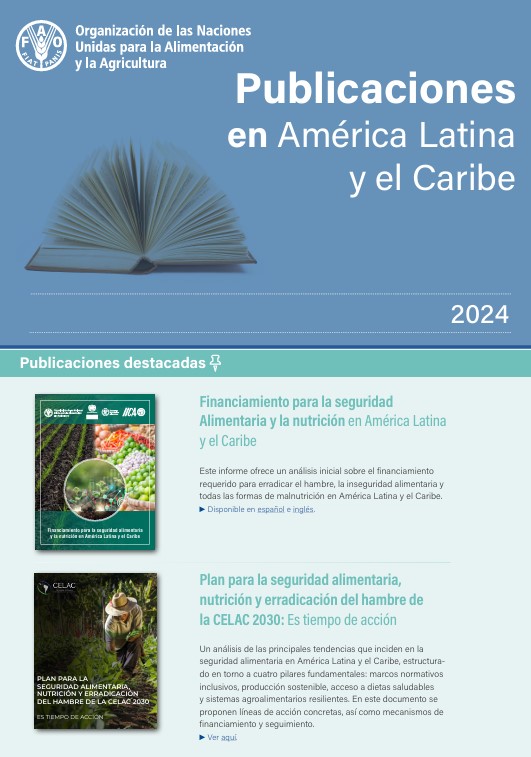Publications
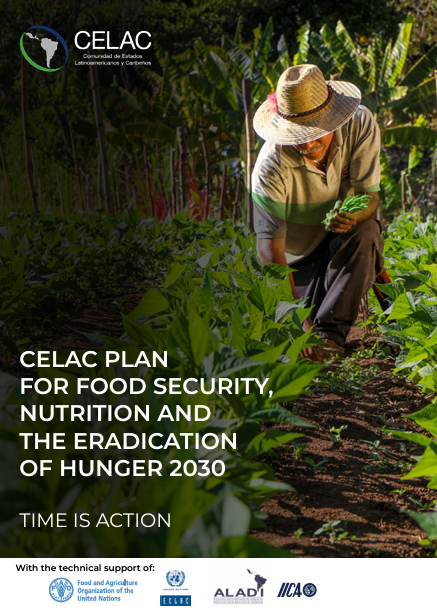
CELAC Plan for food security, nutrition and the eradication of hunger 2030
29/03/2024
The CELAC plan for food security, nutrition and the eradication of hunger 2030 consists of three chapters.
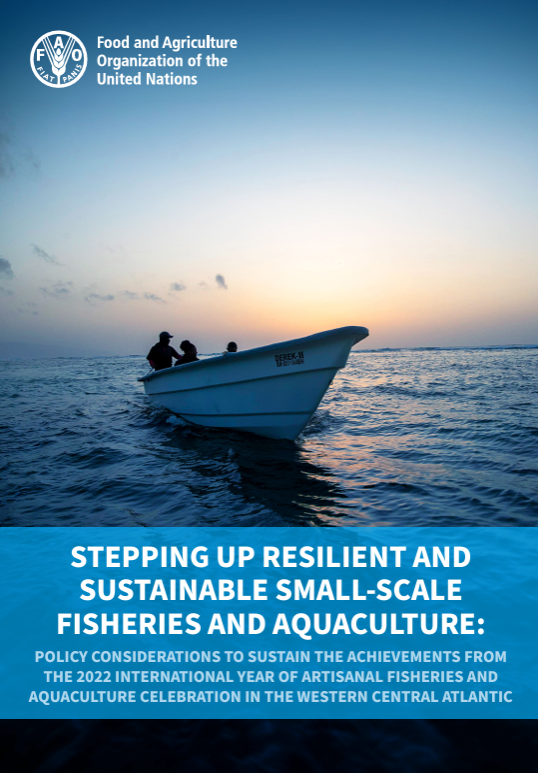
Stepping up resilient and sustainable small-scale fisheries and aquaculture
19/03/2024
The theme for the IYAFA celebration in WECAFC was ‘Resilience and Recovery,’ with a specific focus on gender and youth. The selection of Resilience and Recovery was significant for this region as it took place during the world’s recovery from the global COVID-19 pandemic. Small-scale fishers and fish farmers across the region were severely affected by the pandemic, impacting their social and economic well-being.
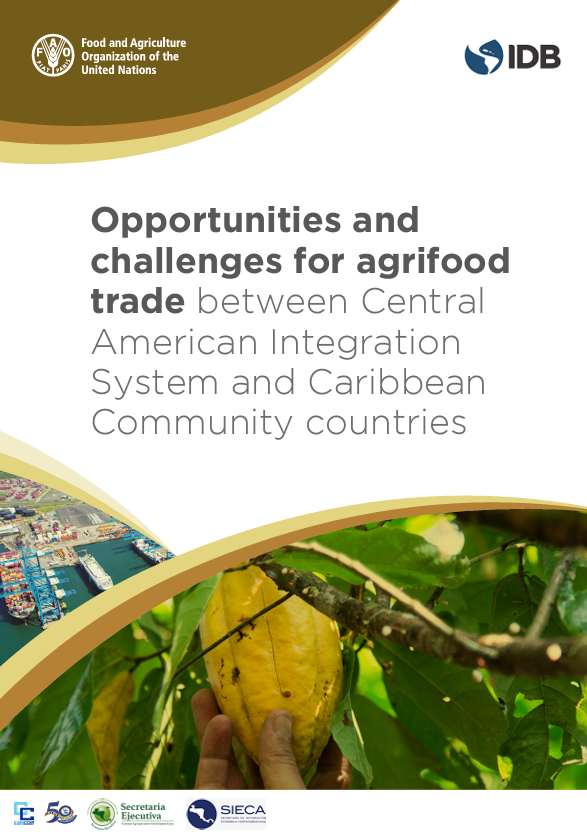
Opportunities and challenges for agrifood trade between Central American Integration System and Caribbean Community countries
01/02/2024
This study responds to the proposal made by the Secretariat of the Central American Agricultural Council (SECAC) and the Secretariat for Central American Economic Integration (SIECA) on the need to promote spaces for integration in the area of agrifood trade between Central America and the Caribbean.
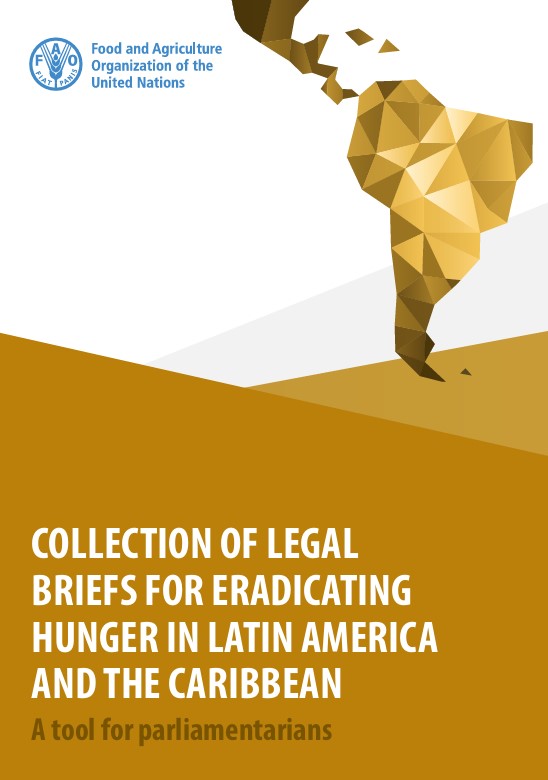
Collection of legal briefs for eradicating hunger in Latin America and the Caribbean
01/01/2024
Its pages compile decades of valuable legal knowledge through ten individually published notes by FAO, bringing together ten key topics related to the right to food and the fulfillment of Sustainable Development Goal 2, with the aim of serving as an essential tool for legislators and policymakers.
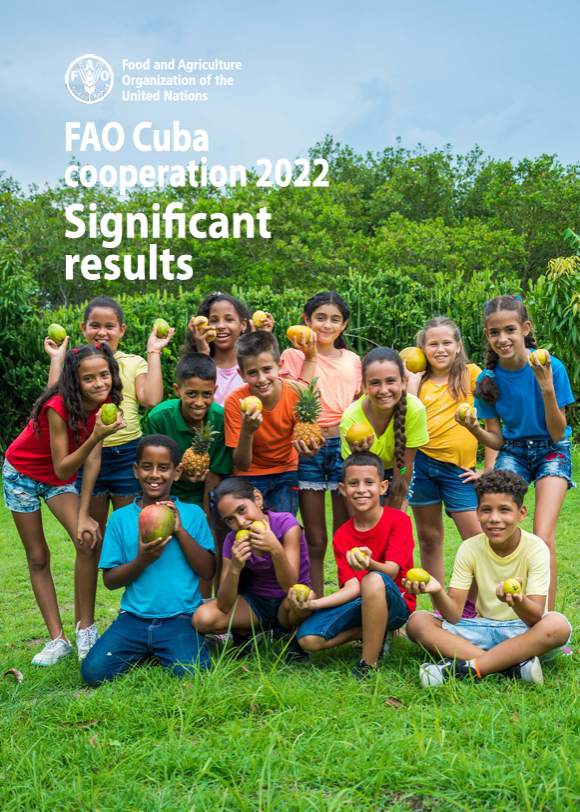
FAO Cuba cooperation 2022
22/12/2023
This report summarizes the main results of FAO Cuba in 2022. At a time when Latin America and the Caribbean are determined to face and overcome the most complex humanitarian, economic and social crisis in recent decades, FAO in Cuba continues to take steps towards the consolidation of its essential goals, with more than USD 57 million mobilized between 2019 and 2022, in support of the priority areas signed with the government in the Country Program Framework 2020-2024.

